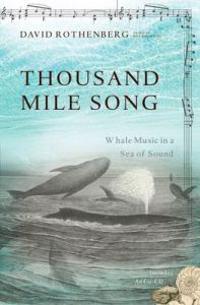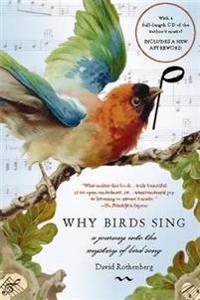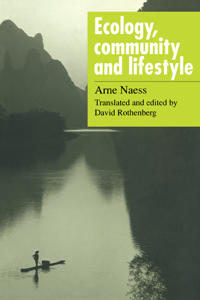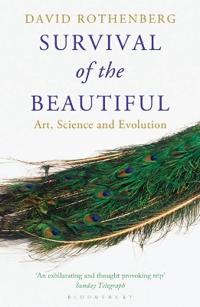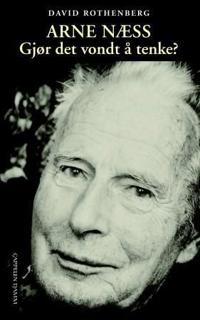Thousand Mile Song (Pocket)
avDavid Rothenberg
ISBN: 9780465018895 - UTGIVEN: 2010-03In Thousand Mile Song, musician and philosopher David Rothenberg uses the enigma of whale sounds to explore whether we can truly understand nonhuman minds. Interviewing scholars around the world as they attempt to decipher underwater music, Rothenberg tells the story of scientists and artists confro[...]
Why Birds Sing (Pocket)
avDavid Rothenberg
ISBN: 9780465071364 - UTGIVEN: 2006-04The astonishing richness of birdsong is both an aesthetic and a scientific mystery. Evolutionists have never been able to completely explain why birdsong is so inventive and why many species devote so many hours to singing. The standard explanations of defending territories and attracting mates don'[...]
Hand's End: Technology and the Limits of Nature (Pocket)
avDavid Rothenberg
ISBN: 9780520080553 - UTGIVEN: 1995-10-13Ecology, Community and Lifestyle (Pocket)
avArne Naess, David Rothenberg, Arne Naess
ISBN: 9780521348737 - UTGIVEN: 199011The basic thesis of the work is that environmental problems are only to be solved by people - people who will be required to make value judgements in conflicts that go beyond narrowly conceived human concerns. Thus people require not only an ethical system, but a way of conceiving the world and them[...]
Bug Music (Inbunden)
avDavid Rothenberg
ISBN: 9781250005212 - UTGIVEN: 2013-05In the spring of 2013 the cicadas will return on their seventeen year cycle - the longest gestation period of any animal. Their deafening sound upon their arrival is familiar to most Americans. Cicadas are famous throughout the world for the "song" - created by the males, and distinctive to each spe[...]
Survival of the Beautiful (Häftad)
avDavid Rothenberg
ISBN: 9781408830567 - UTGIVEN: 201301'The peacock's tail makes me sick!' said Charles Darwin. That's because the theory of evolution as adaptation can't explain why nature is so beautiful. It took the concept of sexual selection for Darwin to explain that, a process that has more to do with aesthetic taste than adaptive fitness. Surviv[...]
Arne Næss; gjør det vondt å tenke? (Pocket)
avDavid Rothenberg
ISBN: 9788202304799 - UTGIVEN: 2009I samtale med forfatteren forteller Arne Næss levende om barndom og studietid, om venner og ekteskap, klatring og filosofi, øko-engasjement og verdens ansvar. Boken gir et bilde av Arne Næss' rastløse søken etter sannheten i en turbulent tid -- storparten av det 20. århundre. Her finner du ikk[...]

